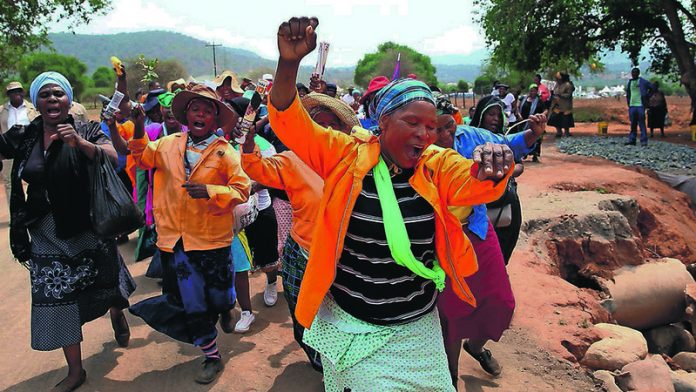The idea that truth is relative to a certain culture, time frame, world view or theoretical outlook can be traced to as far as Plato’s Theaetetus. In this book, Protagoras proclaims that a human being is “the measure of all things, of things that are, that they are, and of the things that are not, that they are not”. For centuries, the proponents of relative truth have sought to exploit such an idea.
Several scholars have argued for relative knowledge and morality, and the argument that truth and rationality are relative has spiralled and led to different knowledge systems with the implication that there are facts that are only valid to certain groups of people.
Undoubtedly, this has presented some problems in terms of how democratic societies, in particular, function. In On Liberty, John Stuart Mill argued that the only time a government is justified in interfering with the right of citizens is when they stand to harm others, an idea that contains both moral relativism and moral absolutism. Simply put, although individual beings know what is best for them, it can be widely agreed that to put another person’s life in danger is unacceptable, apart from in exceptional circumstances such as self-defence.
I will later revert to the notion of democracy and relativism.
The case for the decolonisation of knowledge to embrace multiple truths or ways of knowing is fundamental to the argument for relative truth, rationality, knowledge and morality. Such an epistemic view has been at the centre of movements such as Rhodes Must Fall and Fees Must Fall. But calls for the decolonisation of knowledge to embrace multiple ways of knowing or different knowledge systems have arguably failed to justify on what basis the claim for a free higher education is universally valid if there are multiple knowledge systems or ways of knowing.
In other words, those who hold such a position are compelled by the virtue of multiple knowledge systems to accept that in someone else’s line of thought or knowledge, the idea of a free higher education does not make epistemic or moral sense.
In democratic societies, the idea of relative knowledge renders the premise of democracy futile.
How can a society claim to vest power in the hands of individual beings when the very same people have different conceptions of that which constitutes power? In a worst-case scenario, how can societies deliberate and reach a consensus on mutually binding decisions when rationality is relative?
Amy Gutmann argued that democrats need to embrace secular scientific standards in her book Democratic Education. This is because if we cannot agree on what constitutes valid knowledge, we cannot, unfortunately, agree on anything.
Democracy would then degenerate into anarchy because all behaviours and conceptions of a “good life” would be acceptable. This would create a survival-of-the-fittest society, since people would be able to evade accountability by simply contending that, based on their moral or epistemic schema, there is no such a thing as vulnerable societies or individuals.
Worse, noted Professor Kai Horsthemke, a visiting professor at the University of the Witwatersrand and a fellow at the Oxford Centre for Animal Ethics, relative knowledge would make it possible for people to deny that there was such a thing as, for example, the trans-Atlantic slave trade.
The ramifications of relativism are, without a doubt, evident in the South African political realm. In times of crisis, South Africans are often divided on what constitutes “good” behaviour. For instance, South Africans can easily agree that corruption is wrong when no particular popular individual is mentioned. When the subject turns to people they know, or people to whom they can relate by virtue of their skin colour or values, they then look into circumstances for a possible defence or justification of such acts of criminality.
Similarly, South Africans could not agree as to when the lockdown should be lifted. There seemed to be a disagreement between the Economic Freedom Fighters (EFF) and Democratic Alliance (DA) on what we know about the coronavirus and its capabilities. Despite evidence on the nature and impact of the coronavirus, politicians either exaggerated or downplayed the virus. This is evident even in some highly developed democratic countries.
A remarkable instance is Donald Trump’s mockery of the virus despite tangible facts that the virus has claimed the lives of more than 200 000 US citizens. In the same vein, the Brazil right-wing president Jair Bolsonaro went as far as saying, “Death is everyone’s destiny.”
Their refusal to react swiftly to the rapid spread of Covid-19 has been attributed as the cause of death of many people in their countries.
This is what happens when a society refuses to accept secular scientific standards and insteads opt for relative truth or uncorroborated perspectives about the world that are not mandated by how the world is, in and of itself.
For this reason, I believe South Africans will still grapple with racism, corruption, sexism and many other social ills. If we can agree on what constitutes truth and valid knowledge it will create a pathway for us to deal with problems in a coherent manner.
Under the realm of moral and epistemic relativism, for white South Africans, corruption could be an act of criminality only when it is committed by black people. For black South Africans, corruption might be an act of delinquency only when it is committed by white people. This logic applies to other social ills.
Relativism, even in the guise of decolonisation, is not desirable, because of its consequences. It creates moral and epistemic barriers between already divided groups. For us to build an inclusive and prosperous South Africa, we need to first debunk the myth that there is such a thing as relative truth. This will help us agree on what is wrong and the ways in which we can make South Africa better for all.




